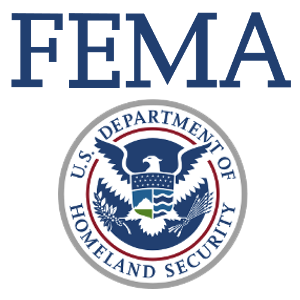 Long night
Long night
Last evening, I finished the last two of four FEMA courses on the Incident Command System (ICS) and the National Incident Management System (NIMS) and the National Preparedness Framework (NPF) that I needed to take for an Auxiliary Communications Workshop being held in October.
Description:
This class is designed for those auxiliary emergency communicators and groups who volunteer to provide backup emergency radio communications support to public safety agencies. Typically, this includes amateur radio and Radio Emergency Associated Communications Team (REACT) communicators, but may include other volunteer emergency communicators.
Volunteer emergency communications operators/groups, using amateur radio, have been providing backup communications to public safety for nearly 100 years. Event planners, public safety officials, and emergency managers at all levels of government utilize their services. Often, amateur radio services have been used when other forms of communications have failed or have been disrupted. Today, nearly all the states/territories have incorporated some level of participation by amateur radio auxiliary communication operators into their TICPs and SCIPs.
This course focuses on auxiliary communications interoperability, the relationship between the COML and the volunteer, emergency operations center (EOC) etiquette, on-the-air etiquette, FCC rules and regulations, auxiliary communications training and planning, and emergency communications deployment. It is intended to supplement and standardize an operator’s experience and knowledge of emergency amateur radio communications in a public safety context.
It's a two day event, held over the weekend of October 24th and 25th at the Middlesex County Fire Academy. Looks to be interesting. My registration was received and accepted pending my sending in the certificates of completion, which I sent in this morning.
The FEMA courses were comprehensive in scope. Each was designed to be completed in about 3 hours and I came in slightly under that amount of time - maybe two and a half hours or two hours and forty five minutes each.
I crammed two in last night (which wasn't wise) as each evening for the rest of this week is booked with other activities. I was pretty bleary eyed for that last exam, but was pleased when I got the e-mail that I passed.
FEMA offers a lot of free, on-line independent study courses. You can look them up at https://training.fema.gov/is/crslist.aspx?all=true
72 de Larry W2LJ
QRP - When you care to send the very least!
Larry Makoski, W2LJ, is a regular contributor to AmateurRadio.com and writes from New Jersey, USA. Contact him at [email protected].Description:
This class is designed for those auxiliary emergency communicators and groups who volunteer to provide backup emergency radio communications support to public safety agencies. Typically, this includes amateur radio and Radio Emergency Associated Communications Team (REACT) communicators, but may include other volunteer emergency communicators.
Volunteer emergency communications operators/groups, using amateur radio, have been providing backup communications to public safety for nearly 100 years. Event planners, public safety officials, and emergency managers at all levels of government utilize their services. Often, amateur radio services have been used when other forms of communications have failed or have been disrupted. Today, nearly all the states/territories have incorporated some level of participation by amateur radio auxiliary communication operators into their TICPs and SCIPs.
This course focuses on auxiliary communications interoperability, the relationship between the COML and the volunteer, emergency operations center (EOC) etiquette, on-the-air etiquette, FCC rules and regulations, auxiliary communications training and planning, and emergency communications deployment. It is intended to supplement and standardize an operator’s experience and knowledge of emergency amateur radio communications in a public safety context.
It's a two day event, held over the weekend of October 24th and 25th at the Middlesex County Fire Academy. Looks to be interesting. My registration was received and accepted pending my sending in the certificates of completion, which I sent in this morning.
The FEMA courses were comprehensive in scope. Each was designed to be completed in about 3 hours and I came in slightly under that amount of time - maybe two and a half hours or two hours and forty five minutes each.
I crammed two in last night (which wasn't wise) as each evening for the rest of this week is booked with other activities. I was pretty bleary eyed for that last exam, but was pleased when I got the e-mail that I passed.
FEMA offers a lot of free, on-line independent study courses. You can look them up at https://training.fema.gov/is/crslist.aspx?all=true
72 de Larry W2LJ
QRP - When you care to send the very least!















I think you will enjoy the auxcomm class. Mine was fairly intense. A lot of info in a short time. Have fun!